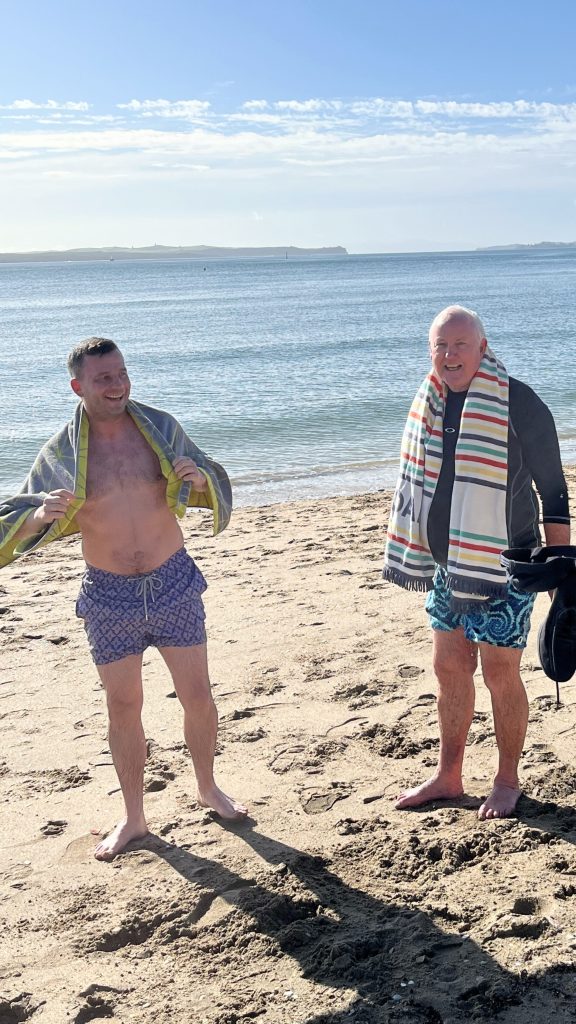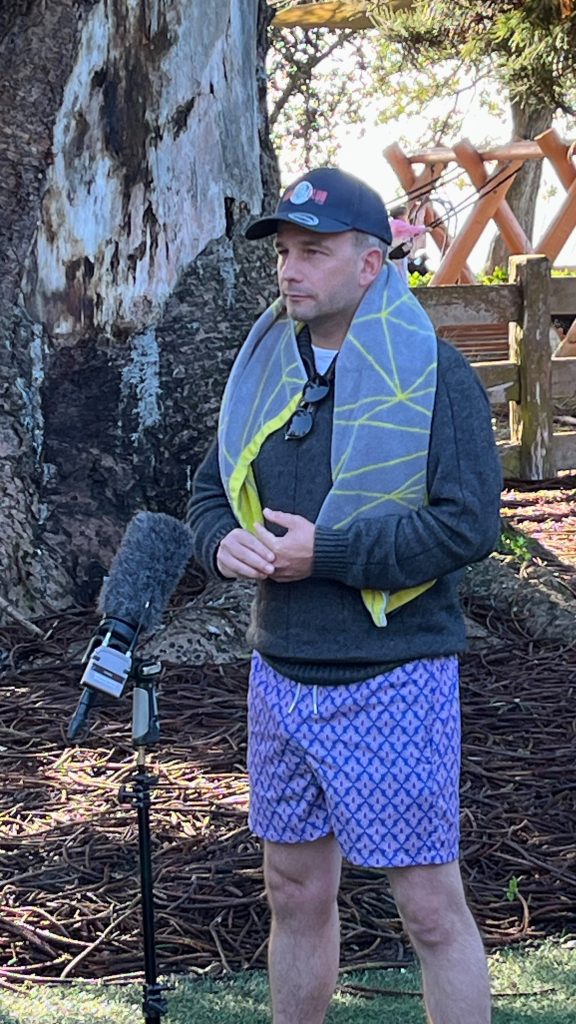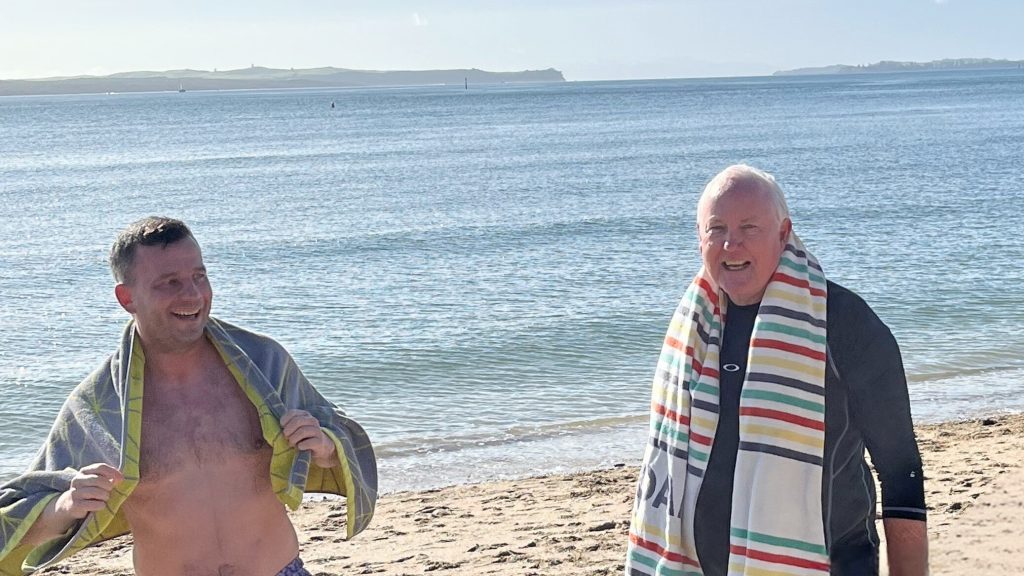
21 June 2025

The acting Prime Minister and the Consumer Healthcare Products Association NZ (CHPNZ) Chief Executive took to the ocean for today’s Winter Solstice to highlight how over-the-counter medicines (OTC) can be a safe and effective solution to coughs and colds, as well as decrease the pressure on GPs and hospital emergency departments this winter.
CHPNZ CE Scott Milne said he and Hon David Seymour, also Associate Health Minister, chose the shortest day for a chilly swim at Auckland’s Mission Bay to draw attention to the availability of OTC alternatives to what many GPs refer to as the ‘8am daily scramble’ to make medical appointments.
“When feeling the effects of winter coughs and colds, and in non-emergency situations, in most instances kiwis should contact or visit the local pharmacy for guidance,” said Milne.
“Not only can they recommend non-prescription relief along with possible prevention options, where appropriate, but people can be further assured through pharmacist knowledge and by their access now to safer and proven treatments as evidenced during the Covid 19 pandemic.
“During this period pharmacists took on more low risk activities previously only available through a doctor.”
Mr Milne said that while the Association’s members welcomed the Government’s recent initiatives to secure local access to safe and effective restricted medicines such as pseudoephedrine, CHPNZ offered to work closer with the regulator Medsafe to unlock New Zealand’s access to the increasingly innovative OTC options that others around the world, including Australians, can access.
“When suffering from the effects a minor illness, it simply doesn’t make sense that potentially the safest and most effective treatment is available to Sydneysiders but not to those who live in Auckland,” Milne said.

“Reducing barriers to access a wider range of the latest safe and proven OTCs is a simple and highly effective way of reducing pressure on our GP’s and emergency rooms with safety mechanisms available through the expertise of primary healthcare health professionals.”
“It should also mean that the primary healthcare resource available in the community through the pharmacy network and the provision of OTC medicines and services can finally be used to a fuller extent.
“CPHNZ’s own research shows that this is more cost-effective to deliver and more affordable for people needing health care and advice.” *
Mr Milne said CHPNZ hope that an increased consideration of OTCs would also lead to a rise in the standard of health literacy across the community.
“Educating New Zealanders about the safe and appropriate use of all medicines, whether they be over the counter or prescription, and how they can access appropriate medical services, and support should lead to a much more effective and value-for-money health system,” said Milne.
“Educating New Zealanders about the safe and appropriate use of all medicines, whether they be over the counter or prescription, and how they can access appropriate medical services, and support should lead to a much more effective and value-for-money health system,” said Milne.
*CHPNZ’s report “Health Key Priorities: A Government & Industry Partnership. How the OTC medicines industry can work with Government to relieve the pressure on GPs and Emergency Departments, streamline regulation, improve the nation’s health, and save taxpayers money” is available at here.


